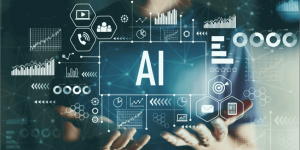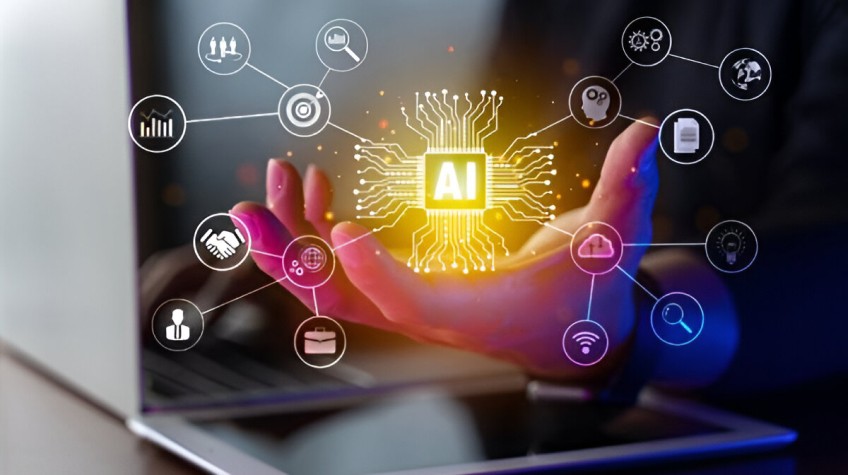
AI is changing the business sector, giving independent entrepreneurs the opportunities that enable them to work smarter and make revolutionary decisions. Starting from customer experience and predictive analytics to workflow optimization and fraudulent case identification, artificial intelligence influences numerous industries and sectors.
In this article, let’s look at the top 15 outstanding cases of AI applications in business and understand what opportunities are opening up for entrepreneurs because of these technologies. However, before enlisting the 15 AI applications in business, one should understand why it is essential to integrate AI into businesses.
Why Entrepreneurs Should Integrate AI into Their Business?
AI holds great importance for aspiring business persons as it provides an opportunity to improve efficiency and performance. Here are some of the top benefits of integrating AI into businesses:
- Improved Efficiency: Saves time by automating routine tasks, thereby saving time for more valuable activities or tasks.
- Cost Reduction: Minimises operational costs by making efficiency improvements on existing operational procedures and use of resources.
- Enhanced Decision Making: Enhances the formulation of effective strategies by furnishing accurate and relevant data.
- Personalized Customer Experience: Responds individually to each client increasing their satisfaction and thus the chances of being loyal.
- Optimized Marketing: It allows carrying out proper and efficient marketing to the target market.
- Risk Mitigation: Manages risks such as fraud, cybersecurity risk and even market risk.
- Scalability: Helps to manage complexities arising from the growth of business, therefore, helping businesses to expand with ease.
- Innovation: This is crucial to the production including new products and services also improving the analytics to predict the market.
- Competitive Advantage: Helps businesses remain relevant in a market where everything is fast paced due to automotive technological advancements.
- Demand Forecasting: Aids on inventory and supply chain management by making accurate demand forecasts.
Top 15 AI in Business Examples and Their Benefits
After understanding why businesses should integrate AI, let’s take a look at key examples of AI in business across different industries….
Example 1: AI in Operational Excellence
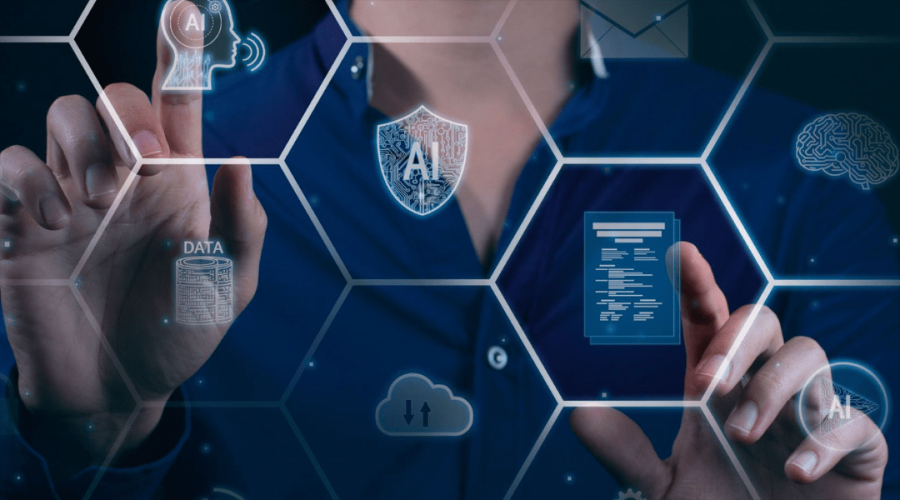
Artificial intelligence plays a prime role in obtaining operational excellence because it optimizes processes, ensures efficiency and reduces costs. Machine learning based reporting assists in demand forecasting and the discovery of other areas of inefficiency. It also cut down overall expenses during procurement, inventory holdings, delivery cycles and wastage.
➢ Key Benefits:
- AI supports advanced and accurate decisions as it provides real time data analytics.
- Makes work more efficient by avoiding human interference and ensures that tasks are carried out by machines thus avoiding the extra cost of employing human resources.
- Optimizes resource utilization, reducing wastage, which therefore lowers operational costs.
Example 2: AI in Supply Chain Optimization

The supply chain was one of the first fields to adopt AI technology since it optimizes supply chain analytics and automates the work involved. AI technologies allow organizations to improve logistics, demand forecasting and supplier relations. It also results in optimized operations, cost minimization and ultimate consumer satisfaction to build a competitive, effective and sustainable supply chain network.
➢ Key Benefits:
- AI analysis of historical and real time data provides prediction for demand trends thus avoiding overstock and stockout.
- Enhances the understanding of suppliers capabilities and their performance evaluating process.
- AI delivers real time tracking of the shipments and inventory within the network of a supply chain.
Example 3: AI in Strategic Business Transformation

Artificial Intelligence (AI) is a motivator of strategic business transformation enabling organizations to challenge and transform business paradigms, models and customer solution value propositions. When AI is implemented, businesses can find new opportunities, promote process advancements and outperform competitors in the rapidly technologized and data oriented environment.
➢ Key Benefits:
- Simplifies business transactions through the use of technology, making them efficient and economical.
- Includes analysis of the prospect of market developments and potential opportunities to create new types of business and revenue sources.
- Encases the capacity to identify and even prevent risks by monitoring patterns and predicting any type of future issue.
Example 4: AI in Digital Marketing
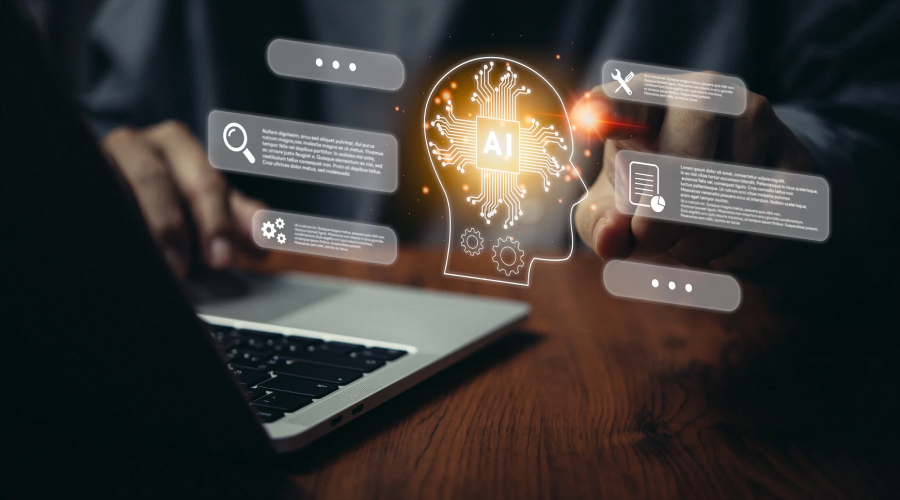
Whenever we talk about digital marketing, the one tool that is fast transforming the market game is none other than Artificial Intelligence (AI). With the help of AI tools, consumer behavior can be studied, trends can be forecasted and monotonous jobs can be made more precise and effective, making marketing campaigns more accurate. Furthermore, AI-based systems are also being used in content generation. For example, an AI writing tool can assist businesses in creating high-quality, optimized content for their marketing needs.
➢ Key Benefits:
- Innovatively replaces customer’s static communication with real time engagement by improving satisfaction through chatbots and virtual assistants.
- Engages in creating and enhancing content through various AI tools in order to gain a higher level of engagement.
- Automates routine processes like marketing of emails and Ad postings which are extremely time consuming.
Example 5: AI in Financial Analysis and Risk Management

AI increasingly applies data analysis for financial ratios and risk prediction. Investment companies, financial institutions and others in general use AI to evaluate risk, estimate future market conditions, make better investment decisions and minimize or prevent potential financial losses.
➢ Key Benefits:
- Machine learning interprets data from the past to predict future hazards in addition to market changes.
- Improves the detection of suspicious and malicious activities in transactions, thereby increasing transaction security.
- AI employs sophisticated quantitative methods in the determination of the credit ratings of applicants for credit facilities to enhance loan transaction decisions.
Example 6: AI in Product Development and Innovation
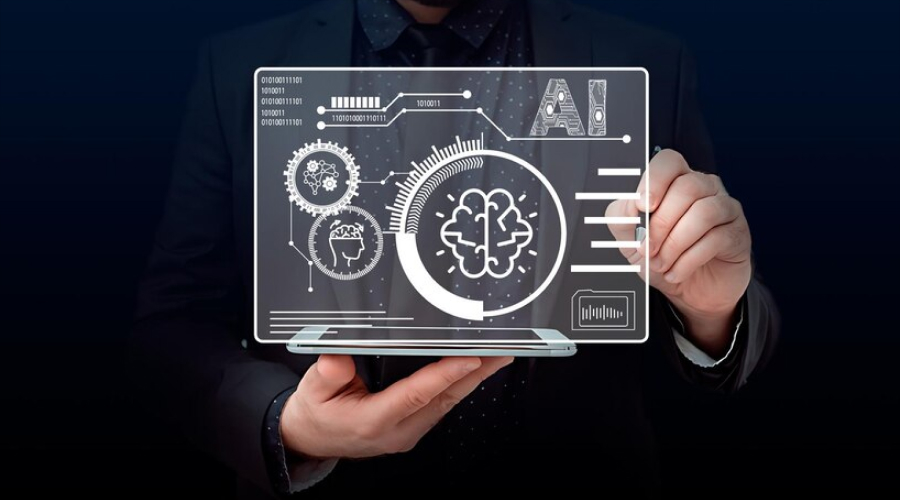
AI not only supports the acceleration of product development but also reduces the risks inherent in bringing new products to the market by offering product differentiation and increasing effectiveness and speed. Using tools such as machine learning, data analysis and AI based modeling of products, it is possible to improve customer knowledge, adjust the product for consumer needs and reduce the time to market.
➢ Key Benefits:
- AI helps reduce the research and development period by using big data, computation and data visualization.
- AI can provide insights into the needs, wants and concerns of consumers that enable firms to develop products that fulfill those needs.
- Ongoing tracking of product performance, revealing tips to optimize the product quality and characteristics of the products.
Example 7: AI in Risk and Compliance
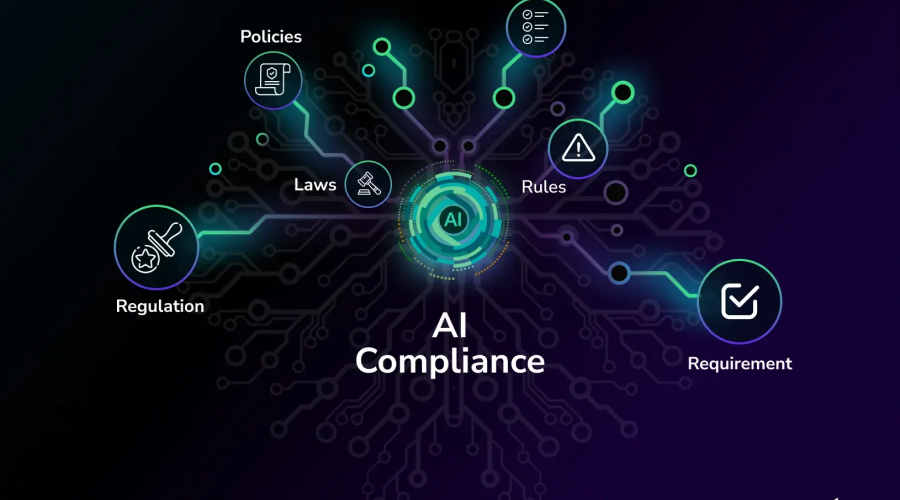
AI is bringing an unprecedented revolution in risk and compliance management through the detection, evaluation and control of the probable risks and meeting the prescribed rules and regulations. With the help of AI, the management of risks is more effective, human error is minimized, compliance work is accelerated and, most importantly, there is an increased ability to adapt to changes in legislation in real time.
➢ Key Benefits:
- Machine learning gathers and evaluates a lot of data to detect and estimate threats in real time and make early warnings.
- AI monitors changes to regulations and it makes sure that organizations are up to date with changes in regulations by automating reporting and auditing.
- Identifies suspect tendencies in transactions or behavior to control incidences of fraud.
Example 8: AI in Customer Experience and Support
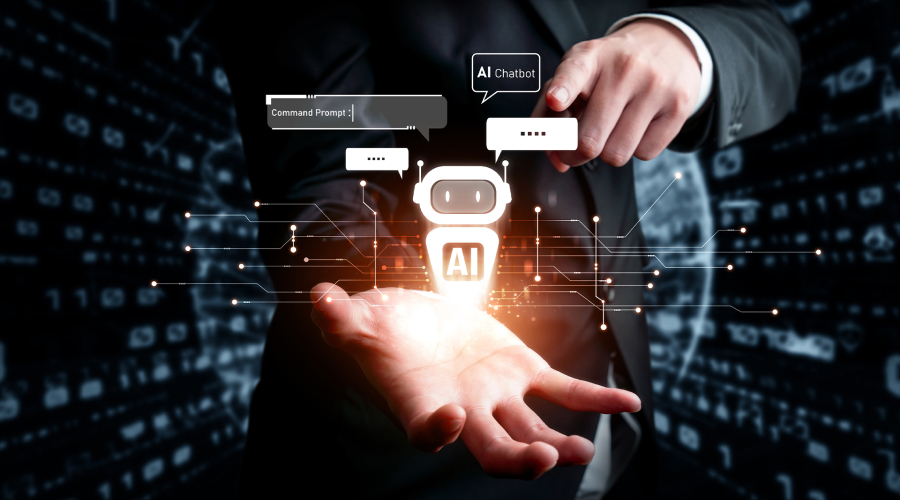
Customer relations is now being impacted by AI and people are now enjoying faster and more efficient customer service. With the help of AI technologies, companies are able to use chatbots and virtual assistants to automatically recognize customer requirements, solve difficulties quickly and provide a high satisfaction rate.
➢ Key Benefits:
- Customers can engage with AI chatbots or a virtual assistant that offers 24/7 customer support by answering questions and tackling problems.
- Through AI, firms can make recommendations and provide content, products and solutions that are most preferable.
- Cuts down response time to frequently asked questions, reducing wait times and improving efficiency.
Example 9: AI in Talent Acquisition and Employee Management

AI enables talent acquisition by automatically screening resumes, conducting assessments and scheduling interviews, leading to less bias and more efficiency. When dealing with employees AI improves performance, coaching and training and also workforce scheduling resulting in increased employment loyalty, efficiency and enhanced engagement.
➢ Key Benefits:
- Recruitment is made easier through automatic resume sorting, candidate selection and interviews, hence using AI reduces costs.
- High touch communication, quick response time and improved method of recruitment.
- AI uses big data to forecast the necessary and missing skills, determine future organizational demands and make decisions on staffing.
Example 10: AI in Healthcare and Medical Diagnostics

AI is revolutionizing healthcare in a way that increases diagnosis precision, optimizes patient flow and provides greater value to patients. Further, using big data, which AI can process quickly, supports risk factor identification, treatment recommendations and the optimization of health system processes.
➢ Key Benefits:
- With AI it becomes easier and faster to diagnose a patient, examine a specific medical image or even deal with medical data.
- Helps in screening diseases such as cancer or heart diseases at their early stages when they are easy to treat.
- Tailors healthcare solutions based on data driven insights to every patient.
11. AI in Cybersecurity

Artificial intelligence used in cybersecurity enhances protection through the use of big data for analyzing threats and responses. It makes the real time monitoring automatic which enables early and accurate identification of threats.
➢ Key Benefits:
- AI improves incident management by preventing attacks, which minimizes the involvement of human beings in such incidents.
- It can also refine its responses based on the current threats making it highly protective for the systems used.
- Such advantages lead to strengthened security and risk control, as well as better threat containing mechanisms.
Example 12: AI in Manufacturing and Automation

The use of artificial intelligence in automation and manufacturing is a way to enhance production since it decreases costs associated with time wastage and increases productivity, along with Quality Assurance And Quality Control.
➢ Key Benefits:
- AI brings flexibility to assembly lines with automation where redundancies are rife, making production more efficient.
- AI supported analytics ensures improved management of resources, optimized cost and efficient cooperation in supply chain networks, resulting in agile and adaptive manufacturing systems.
Example 13: AI in Sales and Customer Insights

AI in the sales and customer insight area increases the ability to make better decisions by analyzing customers behavior, preferences and tendencies. It extends customization of the marketing campaign, promotional offers and accurate sales projection.
➢ Key Benefits:
- AI ensures that the right approach to sales is made and customer relations are handled by an AI tool to increase conversion.
- AI helps in developing a deeper knowledge of the customers to enhance customer satisfaction, loyalty and retention standards.
Example 14: AI in Legal Tech

AI in legal tech changes the sector through the automation of routine processes, optimization of performance and cost effective solutions. Applied at a strategic level, legal technology helps deliver improved efficiency by automating contract review together with research duties and document examination.
➢ Key Benefits:
- Case outcomes and risks are made easier to predict through predictive analyses, whereas natural language processing makes communication easy and compliant.
- AI makes legal services more accessible, accurate and cost effective for law firms and their clients.
Example 15: AI in Environmental Sustainability

One of the most significant contributions of AI is to improve the sustainability of environmental resources by minimizing wastage. It assists in tracking environmental trends including quality of air, power usage and cases of deforestation with ease and makes better estimations as well as early intervention.
➢ Key Benefits:
- AI solutions benefit energy and utilities, renewable energy and sustainability, as well as agriculture output and sustainability.
- AI benefits manage endangered species lives, mitigate carbon emissions and make the world’s future environment friendly.
Also Read: Generative AI Best Practices
Conclusion
In conclusion, integration of AI into the business operation makes entrepreneurs enhance their efficiency, save costs and innovate. With customer support, AI delivers invaluable tools from predictive analytics, which helps remain competitive and promotes growth.





